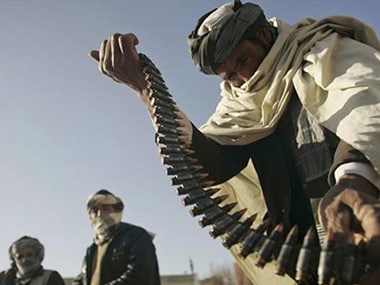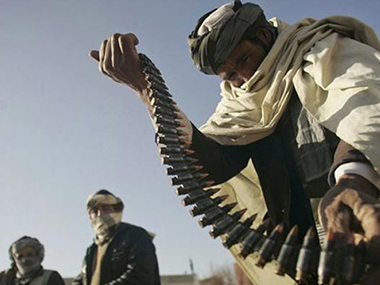After maintaining an ambiguous stance for some time, the Chinese foreign ministry finally conceded that it recently hosted Mullah Abdul Ghani Baradar, the Afghanistan Taliban’s chief negotiator, who is involved in peace negotiations with the United States over the political future of Afghanistan. According to Beijing, the Taliban delegation visited China as part of its efforts to promote peace and reconciliation in Afghanistan. Clearly, Baradar’s ‘mission China’ marks a significant shift in China’s Afghan policy, as it is likely to create an opportunity for Beijing to exercise greater influence over the region’s geopolitical context. [caption id=“attachment_6009661” align=“alignleft” width=“380”]  Representational image. News18[/caption] China’s growing political and diplomatic profile at the international level requires it to assume a more assertive role in resolving regional disputes. Afghanistan is a test case for China, since the situation involves diverse conflict dynamics with both regional and global implications. Thus, Beijing has sought to change the diplomatic modus operandi, clearly implying that China must act as a real “problem solver,” rather than just serving as a “channel of communication.” China’s strategic interests in Afghanistan are tied to the negative outcomes Beijing seeks to avoid in its immediate periphery. For China, the undesirable security outcomes include Afghanistan becoming a safe haven for Uighur radical groups, Islamic forces exerting ideological influence in China’s restive Xinjiang province, and insecurity in Afghanistan further destabilising Pakistan and other central Asian republics. It needs to be underlined that Xinjiang is the only Chinese province that shares a border with Pakistan-occupied Kashmir (PoK), Jammu amd Kashmir as well as Afghanistan, in addition to sharing borders with Russia, Mongolia and central Asian republics of Tajikistan, Kyrgyzstan, and Kazakhstan. Though China has an obvious edge over India due to sharing long borders with Central Asia, however it is also a disadvantage when viewed from security perspective. While regional peace is a major prerequisite for realising the ‘China dream’, restoring and maintaining stability in Afghanistan is equally critical to China’s security. The negative scenario in Afghanistan could diminish the prospects of China’s grand geopolitical project — the Belt and Road Initiative (BRI) — as well as the China-Pakistan Economic Corridor (CPEC), which is the most important component of the BRI. As one Chinese scholar, Zhao Huasheng, rightly put it: “Considered negatively, Afghanistan is a like a lock that can cut off Central, South and West Asia from each other. Considered positively, it is the key that can open the door to collaboration between these areas. It can be both of these to the Silk Road Economic Belt. Only when the Afghan lock is opened can the Silk Road Economic Belt realise the interconnections between these regions economically, financially and socially. If it remains closed, any progress in implementing this initiative will be greatly impeded.” In other words, instability in Afghanistan would directly impinge on China’s economic security, particularly the security of its oil and gas pipelines. If Central Asia was to become unstable due to instability in Afghanistan, successful execution of the BRI projects would not be possible. That is why Xi Jinping did not forget to remind his Afghan counterpart, during their bilateral meet on the sidelines of just-concluded summit of the Shanghai Cooperation Organisation at Bishkek in mid-June, to firmly support China in its crackdown of East Turkistan Islamic Movement (ETIM), an organisation branded by China as a terrorist group. Chinese diplomatic moves have not taken place in a geopolitical vacuum. Until recently, the Chinese role in Afghanistan was not as visible and assertive as one would expect from an aspiring global superpower. Although China held talks with Taliban: In 2015, an Afghan Taliban delegation led by Sher Mohammad Abbas Stanikzai had held backchannel discussions in China, but Beijing continued to avoid being directly sucked into the Afghan political quagmire. However, circumstances now seem more favourable for the Chinese moves. Afghanistan is all set for another major transition. As the possibility of an American exit from Afghanistan has grown, and seems only a matter of time when it is eventually announced, China is marching ahead to expand its role in the country. When seen from Indian perspective, China has one major advantage that other mediators, including the US and Russia, lack. The Chinese enjoys a rock solid partnership with Pakistan, which holds the key to the Afghan riddle. Beyond acting as the conflict’s catalyst, the Pakistani side enjoys considerable links to those Afghan actors which have a considerable spoiling potential. Due to obvious strategic advantages, Pakistan has openly and aggressively promoted the perception that the path to peace in Afghanistan passes through Islamabad. In fact, Afghan president Ashraf Ghani had undertaken his first official foreign visit to Beijing in October 2014, not to Islamabad. The reason was obvious: Since Pakistan provides ideological and material patronage to the Taliban, Ghani wanted China to exercise its strategic leverage with Pakistan to persuade the Taliban to talk peace with Kabul. It is another matter that nothing substantial came out of it. But China’s Afghan policy has evolved from indifference to engagement as Beijing’s geostrategic and geoeconomic interests in the region are continuing to expand via the BRI. If Ghani pledged Afghan support to the BRI, Beijing has also begun preparations to fully integrate Afghanistan as a member state into the SCO. Baradar’s China visit should also been viewed with broader perspective of China’s push to ensure that result-driven peace talks are held for the negotiated political settlement in Afghanistan. Besides the Taliban-induced escalation in violence, one of the toughest challenges before the Chinese diplomats has been to reduce tensions between Afghanistan and Pakistan. Removing mutually hostile perceptions between the political elites of Afghanistan and Pakistan is not an easy task. China is equally wary that proxy battles in Afghanistan between India and Pakistan could escalate tensions in the region. Afghanistan has maintained a close relationship with India, which has refused to be part of the BRI. China is not oblivious to the emerging strategic consensus between India and the US, which has been encouraging New Delhi to expand its footprint in Afghanistan. Recognising India’s importance and its positive image among the majority of Afghans, Beijing has made some moves indicating its willingness to working closely with India in Afghanistan. The possibility of exploring joint projects was also discussed during the informal ‘Wuhan summit’ between Prime Minister Narendra Modi and Chinese president Xi Jinping last year. Following this consensus, India and China conducted a joint training program for Afghan diplomats. Last month, the Chinese special envoy Deng Xijun, who was on a visit to New Delhi, held discussions on Afghan situation with India’s foreign secretary Vijay Gokhale. However, there is widespread scepticism of India-China collaboration in Afghanistan due to the fact that China has become the primary regional competitor to India. Pakistan’s security establishment invariably views its association with China as counterbalancing India’s power and influence in the region. And the Chinese never hide this reality as well. The deep-seated rivalry between India and Pakistan coupled with China’s concerns about India-US strategic convergence have been among the major factors bringing Beijing and Islamabad closer. Therefore, it remains to be seen how effectively India will coordinate its position with China to ensure that its security and economic interests are taken care of when American troops are finally withdrawn from Afghanistan. Despite some limiting factors, China is showing its willingness to influence the present trajectory of the Afghan peace process. Beijing is well-positioned to facilitate intelligence sharing and border security mechanisms between Pakistan and Afghanistan. Going further, the prospects of launching joint military operations against the Islamic State in the restive border regions could also be explored by the three countries. However, the success of Chinese initiatives will depend on its ability to persuade Pakistan to support peace talks between Kabul and the Afghan Taliban, which is the most crucial step in securing long-term peace in Afghanistan. Moreover, the end state in Afghanistan is also going to be determined by the dynamics of Afghanistan-Pakistan-India trilateral relations. It should not be forgotten that Afghanistan is known as a graveyard of empires that ignored the country’s inherent complexities. American policy has been no exception, and its architects have learned that lesson the hard way. Mollycoddling Pakistan has severe consequences. Beijing must take note of reality if it is genuinely concerned about regional peace and security.
According to Beijing, the Taliban delegation visited China as part of its efforts to promote peace and reconciliation in Afghanistan
Advertisement
End of Article


)

)
)
)
)
)
)
)
)



